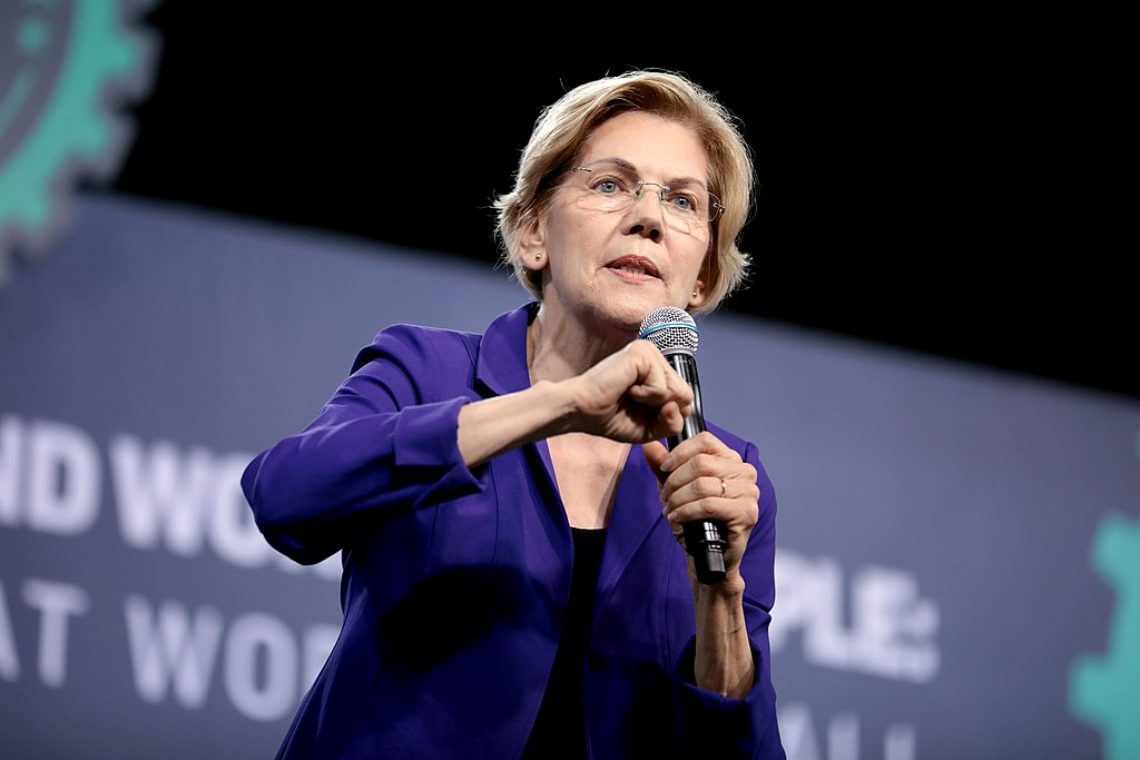
The US Senator Elizabeth Warren (D-MA) has expressed her willingness to collaborate with the crypto industry, while insisting on the need to respect the same regulatory standards as traditional finance.
Senator Elizabeth Warren’s interest in collaborating with the crypto ecosystem
In a recent interview with Bloomberg Television, Senator Warren reiterated her position that the cryptocurrency sector must operate within existing financial regulations, expressing skepticism about the industry’s claims that such regulations would stifle innovation.
“I want to collaborate with the industry. What I don’t understand is why the industry seems to say that the only way to survive is to make room for drug traffickers and human traffickers,” observed Senator Warren, highlighting concerns about illicit activities facilitated by cryptocurrencies, including funding rogue nations and ransomware attacks.
As a prominent figure in the Senate Finance Committee and the Committee on Banking, Housing, and Urban Affairs, Senator Warren has openly criticized cryptocurrencies. Recently, she introduced an anti-money laundering bill aimed at extending the requirements of the Bank Secrecy Act to various crypto entities, including miners, validators, and wallet providers.
His insistence on subjecting cryptocurrencies to the same rules as traditional finance reflects his broader regulatory agenda in the financial sector.
By emphasizing the need for regulatory control parity, Senator Warren highlighted the principle of equal conditions within the financial system.
“Keep in mind that in our financial system everyone more or less follows the same rules,” he declared, emphasizing the inclusion of banks, credit unions, and other financial institutions in existing regulatory frameworks.
Senator Warren’s approach to regulating cryptocurrencies is based on the application of existing laws rather than the introduction of completely new regulations. The senator considers the cryptocurrency industry comparable to other financial sectors in terms of risk and activity, advocating for a consistent application of regulatory standards across all sectors.
Regulation of the ecosystem according to the Senator
Although Senator Warren’s remarks may provoke criticism within the cryptocurrency community, they are in line with her broader legislative agenda aimed at addressing financial misconduct and illicit activities. Her stance reflects a desire to mitigate potential risks associated with cryptocurrencies, while also promoting innovation within a regulated framework.
Warren’s statements come at a time when the cryptocurrency industry is increasingly under scrutiny, with regulatory agencies and lawmakers grappling with the challenges posed by its rapid growth. The emergence of decentralized finance (DeFi) platforms and non-fungible tokens (NFTs) has further complicated regulatory efforts, prompting calls for comprehensive oversight.
In particular, Senator Warren’s comments were made in response to challenges from encryption-friendly figures, including lawyer John Deaton, who intends to challenge her seat in the Massachusetts Senate in the upcoming elections. Deaton criticized Warren’s approach to cryptocurrency regulation, arguing for the need for a more favorable regulatory environment for the sector.
As Warren prepares for her reelection campaign, she must face opposition within the cryptography space, with Deaton and other supporters challenging her anti-cryptography stance. However, Warren remains steadfast in her commitment to regulatory oversight, framing her approach as essential to safeguarding the integrity of the financial system.
With the upcoming elections, Warren’s position on cryptocurrency regulation is likely to remain a controversial issue, reflecting broader debates on the future of finance and innovation. As regulatory efforts continue to evolve, the cryptocurrency sector must navigate a complex landscape shaped by conflicting interests and regulatory imperatives.
Conclusions
In conclusion, Senator Elizabeth Warren’s willingness to engage in collaboration with the cryptocurrency industry, while also supporting strict regulatory measures, highlights the complex dynamics shaping the future of finance.
Although Warren’s insistence on subjecting cryptocurrencies to traditional financial regulations may spark debate within the industry, her approach reflects broader concerns regarding financial integrity and consumer protection. With the increasing popularity of cryptocurrencies, regulatory clarity and oversight are essential to address the risks associated with illicit activities and ensure market stability.























